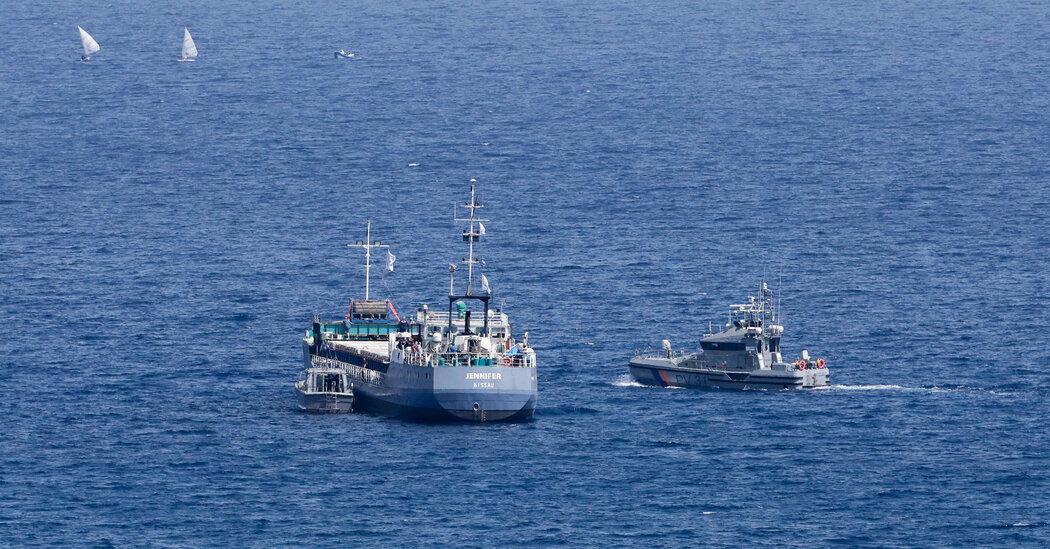A second load of aid from the World Central Kitchen left Cyprus for Gaza on Saturday, an even bigger batch of badly needed food for Palestinians at imminent risk of famine.
A vessel, called the Jennifer, and other barges were carrying almost 400 tons of shelf-stable and ready-to-eat items like rice, pasta, flour, canned vegetables and proteins — double the amount delivered in the World Central Kitchen’s first shipment to Gaza in mid-March, the charity said in a statement. The United Arab Emirates also contributed a shipment of dates, which are often eaten to break one’s fast during Ramadan, the holiest month of the Muslim calendar. There is a little more than a week until Eid al-Fitr, the Islamic festival that celebrates the end of the holiday. This year it is expected to fall on or near April 9.
It was not clear when the second shipment would arrive, but the first vessel, called the Open Arms, took about four days to reach Gaza after leaving Cyprus. The Jennifer was also carrying two forklifts and a crane to offload cargo.
Delivering aid by sea is one of the latest international initiatives to stave off the threat of starvation in Gaza, where aid has been limited to tightly controlled border crossings.
When the first vessel arrived in Gaza, José Andrés, the Spanish American chef who founded the World Central Kitchen, said distribution efforts would start in northern Gaza, where violence and lawlessness has hindered food distribution efforts. Arriving at a newly built jetty on the coast, south of Gaza City, it was the first vessel authorized to deliver aid to Gaza in decades.
The United States has also announced a plan to build its own temporary floating pier to bring aid into Gaza, but it could take weeks to build.
A recent report from the Integrated Food Security Phase Classification global initiative, the global authority on famine and nutrition, found that the food shortages driven by the war were so severe that northern Gaza might reach a famine anytime in the coming months.
A famine is defined when an area meets three criteria: At least 20 percent of households have an extreme lack of food; at least 30 percent of children suffer from acute malnutrition; and at least two adults, or four children, for every 10,000 people die daily from starvation or from disease linked to malnutrition.
The process of getting aid into Gaza by land is long and convoluted, with trucks facing delays and difficulties at every stage of the distribution process. Roads ruined by Israel’s bombardment of Gaza make it difficult for trucks to traverse northern Gaza; aid agencies such as the World Food Program have suspended their deliveries there, citing security concerns.
The U.N. agency for Palestinians, known as UNRWA, says that Israel has prevented aid from entering at the necessary pace with its slow inspections. COGAT, the Israeli unit that supervises deliveries into Gaza, points the blame at the aid groups for not distributing aid fast enough.

